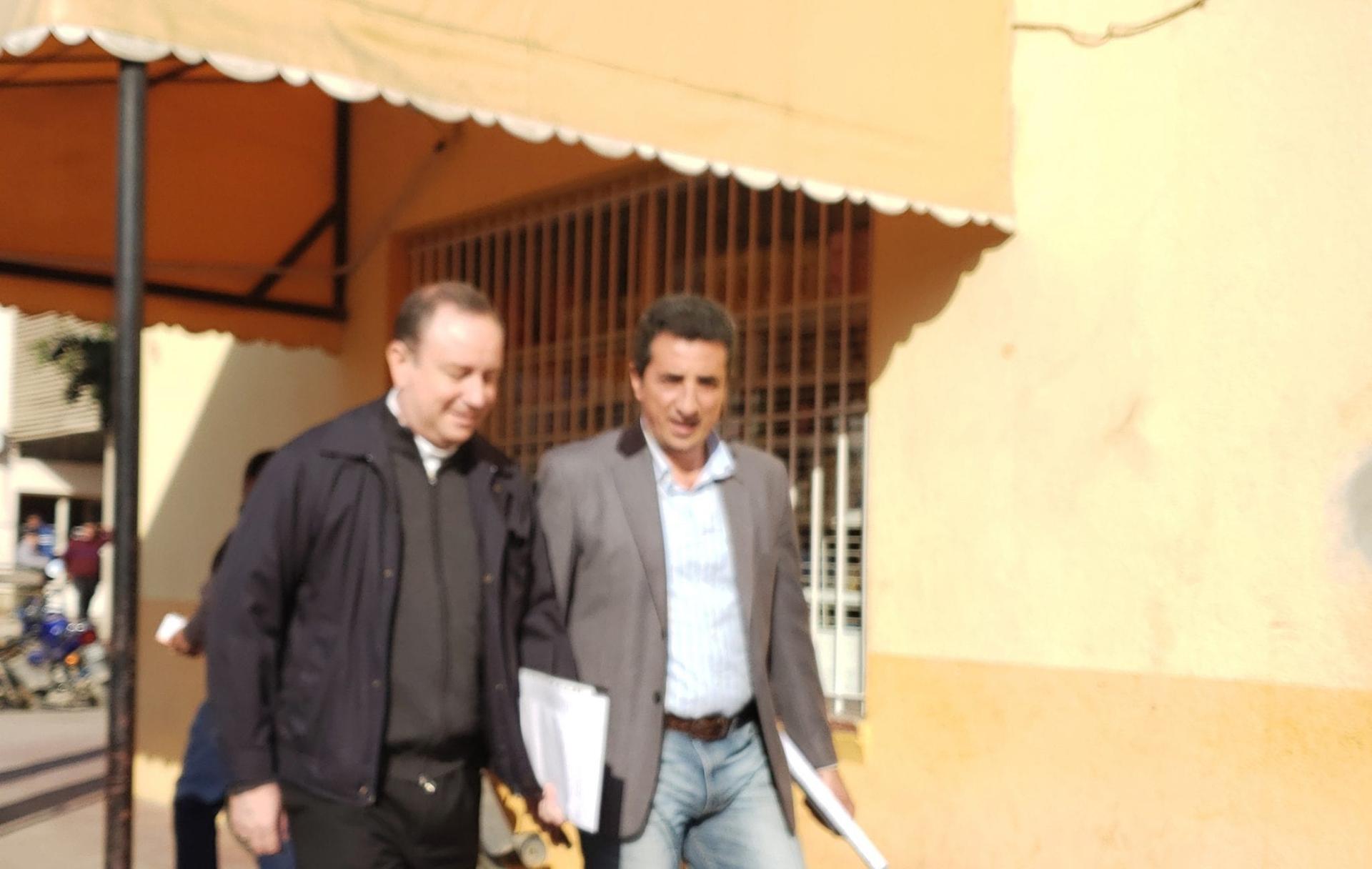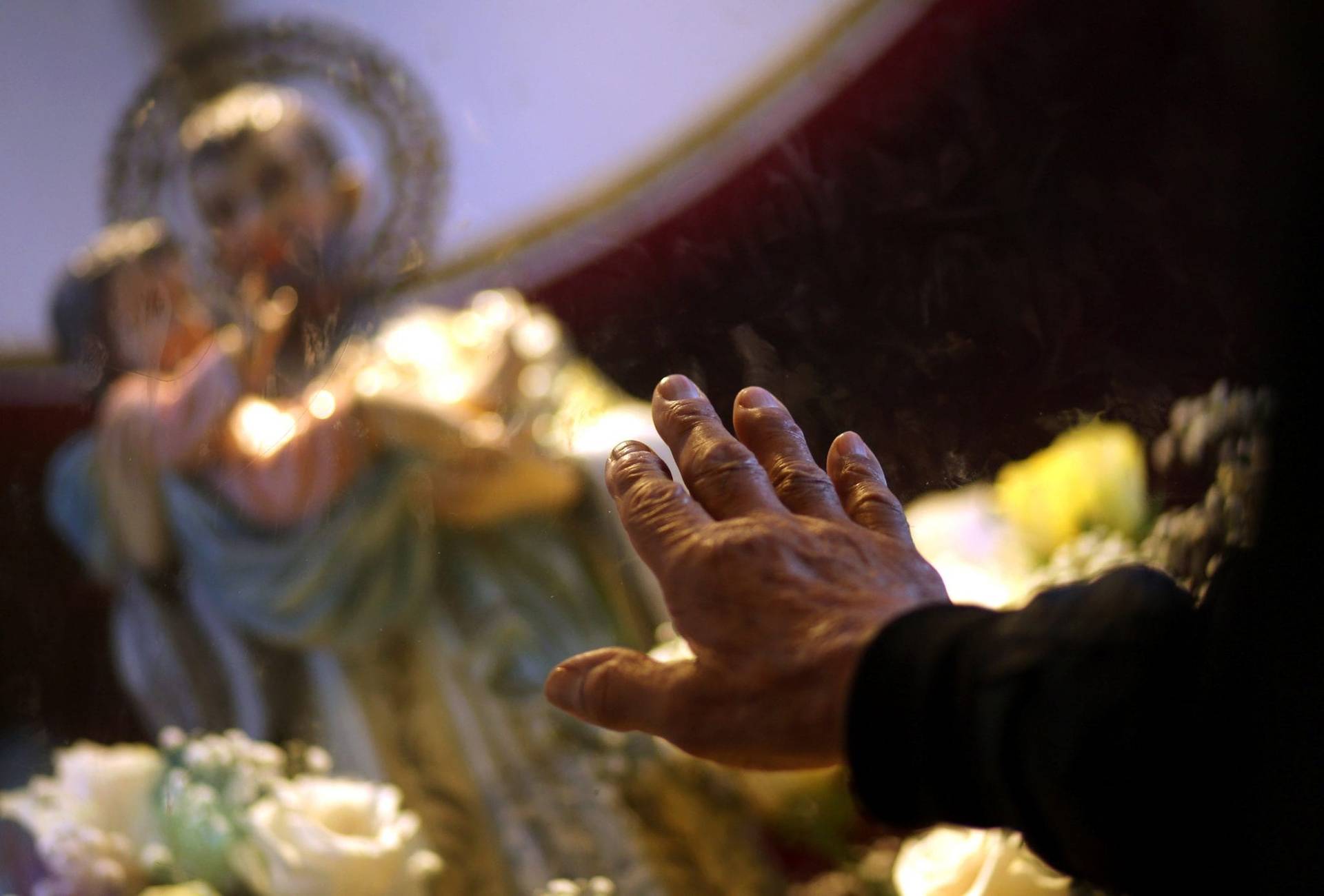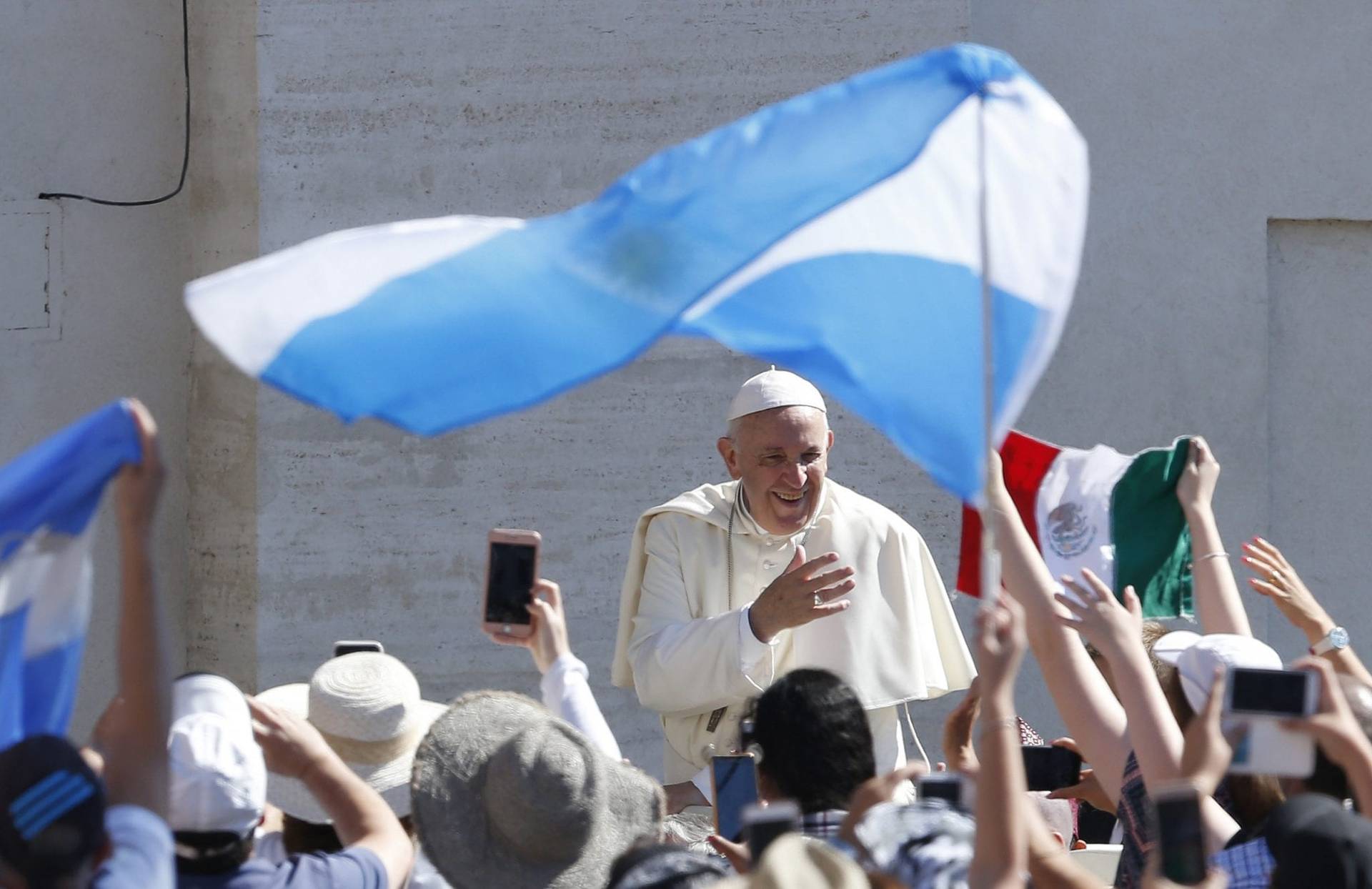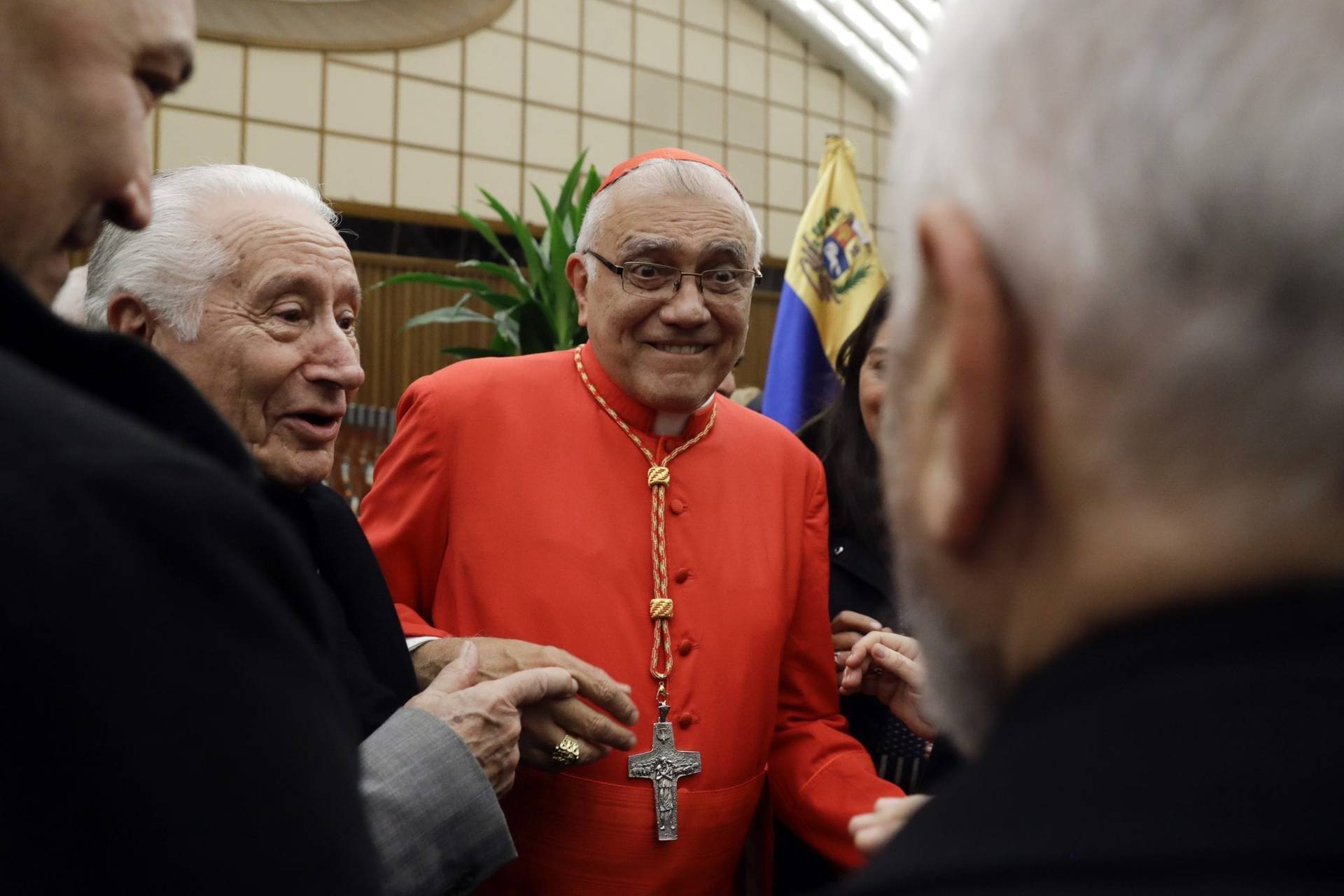ORAN, Argentina – For some months now, the scandal surrounding Argentine Bishop Gustavo Zanchetta, a friend of Pope Francis brought by the pontiff to Rome and given a key position in the Vatican’s financial colossus just as abuse charges were exploding back home, has taken center stage in terms of Vatican news.
Few, however, are likely to have the perspective on the story as “Lucas,” the chosen pseudonym of a former seminarian who spent four years in the Diocese of Oran once led by Zanchetta, where the ex-seminarian now claims he was manipulated and pressured into covering up concerns about the bishop.
His scattered impressions of the experience were shared during the course of an exclusive interview with Crux:
- “They ruined my vocation.”
- “The person who I thought was helping me, wanted to keep me quiet.”
- “He needs to pay for what he did.”
- Zanchetta “doesn’t belong in the priesthood.”
- “During pizza and movie night, the bishop once told us that he hadn’t had an erection that day.”
Zanchetta, a man who boasted of his friendship with the pope, led Oran from 2013 until he left in 2017, alleging a hereditary health condition. He’s since been formally charged with “aggravated continuous sexual abuse” after allegations by two seminarians.
Lucas says that there’s at least one more seminarian who could come forward. Today, however, according to Lucas, he lives at the expense of the local church, has been seen driving the cathedral’s truck late at night, and went from poverty to being a homeowner overnight.
“I believe they’re buying his silence,” Lucas told Crux on Thursday, the same day Zanchetta presented himself in front of a judge to surrender his travel documents. The prelate has been banned from leaving Oran without a court order, and has also been banned from contacting the victims and their families.
According to Zanchetta’s friends, some of whom spoke with Crux on the condition of anonymity, the bishop had spent the 50 previous days in the Vatican, where he’s been suspended since January from his position as assessor of the Administration of the Patrimony of the Apostolic See (APSA).
His residence in Rome is Santa Marta, the hotel within Vatican grounds where Francis has lived since the beginning of his pontificate.
“When he was here, he would boast of his friendship with the pope,” Lucas said. “He would tell us he’d been on the phone with him, and that when Francis came to Argentina, he would ‘secretly come visit us’.”
The ex-seminarian gave up on his dream of becoming a priest last year when he realized that Zanchetta leaving didn’t necessarily improve his situation.
“They killed my vocation,” he said. “I still have the desire to become a priest, but I would never go back to that seminary. I struggled a lot with my decision, because the call is there.”
Asked if he’d considered going to seminary in another city, Lucas said he decided against it because he wants to serve the people in his city.
“I wanted to be a missionary, but having worked here, I knew my call was to be a priest here, in northern Salta,” Lucas said.
Oran is considered a “hot region” in Argentina, not only because of the scorching summer heat, but also because it’s the entry point for drugs smuggled in from Bolivia. The most updated numbers from 2015 estimate that 90 percent of the drugs that enter the country do so from Oran.
According to Oran’s prosecutor for gender violence, María Soledad Filtrín, statistically speaking, the city has a higher number of cases of sexual abuse and violence than the rest of the country.

Abuses in the seminary
Asked if he’d ever been abused by Zanchetta, Lucas said no, and that when Filtrín called him he said as much.
He did say, however, he’d been forced to repel the bishop’s advances.
According to Lucas, Zanchetta had “his favorites,” who would receive gifts and party into the night with him in the seminary. It happened, he said, any day of the week the bishop was there.
Zanchetta would roam the seminary at night, give the priests-to-be alcohol, kiss them on the neck and share overtly sexual jokes. One of those who accused the bishop was once awakened by the prelate sitting in his bed, touching his genitalia.
The former seminarian acknowledged that he was able to say no to the bishop when he offered gifts- including a new computer- because of the formation he’d received at home.
“My parents taught me that it’s not proper to receive a gift when it’s not deserved,” Lucas said. “I had done nothing to deserve a new computer, and I didn’t want to accept it and then have to do something to deserve it.”
Lucas believes that Zanchetta has to pay for what he’s done, particularly from a canonical standpoint: “He doesn’t belong in the priesthood, and he should never have been made a bishop. He was manipulative and had disgusting attitudes.”
When it comes to civil justice, Lucas is a bit more reluctant to assert the bishop’s culpability, as he believes that both Zanchetta and the seminarians knew what they were doing and, in a way, exchanged favors. He’s convinced that even though Zanchetta shouldn’t have acted as he did, the students weren’t necessarily forced either into accepting new computers, tablets or money.
Filtrín, however, told Crux on Thursday she believes some measure of coercion was involved.
“They had a reverential fear and a respect for the bishop,” who when he arrived was introduced to the diocese as a “friend of the pope,” she said.
Some 20 former seminarians have given testimony, and, according to the prosecutor, each is key because they “illustrate the context and the relationship seminarians had with Zanchetta.”
“They are eyewitnesses and they heard things, meaning that they can support what those denouncing him claim,” she said. “It’s very difficult to verbalize these situations, the fear they had of the bishop, their inability to defend themselves.”
According to Filtrín, the gifts Zanchetta gave the young men were all part of a grooming process that led to the abuses. The fact that he was the direct superior made it even more difficult for them to fight against what was happening.
The bishop is also accused of mismanaging church funds, some of which were donations from the faithful and others came from the state. Lucas had no evidence of this, but said he once heard Zanchetta call the state governor, Juan Manuel Urtubey, the “father of providence.”
“I couldn’t believe it … We’re preparing to become priests, and we’re stealing money from those who need it most to pay for our wimps,” Lucas said. “Urtubey was taking money destined for the poor. How could I then face the people, speak to the poor about Christ, when we’re stealing their food?”
This cemented his decision to abandon the priesthood: “Why would I go back? To be corrupt? It’s hard to be one light amidst so much darkness.”
Follow Inés San Martín on Twitter: @inesanma
Crux is dedicated to smart, wired and independent reporting on the Vatican and worldwide Catholic Church. That kind of reporting doesn’t come cheap, and we need your support. You can help Crux by giving a small amount monthly, or with a onetime gift. Please remember, Crux is a for-profit organization, so contributions are not tax-deductible.















